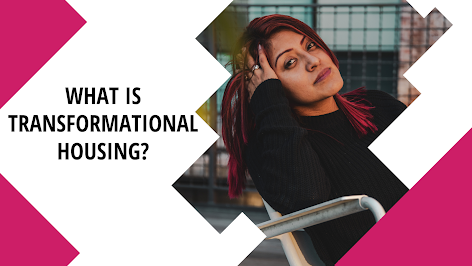Hello and welcome back ACCC members. Today we will be covering a topic that is essential to our development here at ACCC. As many of you may know, ACCC offers housing for female individuals who are over the age of 18. One of the goals of the Shared Housing program is to help women by providing them with employment preparation skills, restoring their self-confidence and rebuilding their self-sufficiency as well as a myriad of other programs to name a few. There is an application process that needs to be followed in order to vet if ACCC is the proper space for you.
Feel free to reach out to us at acccbsm@gmail.com or visit our website at acccbsm.com for more information. Okay, so today’s topic is on transitional housing and transformational living. Let’s get started!
Transitional housing is any type of living situation that is transitional. For example, if you or someone you know is living in a shelter, then moves into ACCC, and then obtains permanent housing; ACCC would be considered transitional living. The purpose is for the living environment to be temporary. This type of living is more than likely low cost and it should provide professional support and a stable living environment. The length of a stay at a transitional housing varies a short-term transitional housing may last for one to two years. In addition, the resident is responsible in obtaining gainful employment or income and file and get permanent housing.
If you or someone you know is in need of transitional housing, please visit transitionalhousing.org in order to learn more about the housing options available in the city of Los Angeles.
So now let’s move on to transformational living!
Let’s think of this as a way to guide yourself through any living situation program. The purpose of transformational housing is to allow the residents to address the issues that may have contributed to experiencing homelessness and allow the residents to obtain permanent housing. More so, transformational housing allows for residents to start a new life in a positive direction.
According to Alan Seale from Transformational Presence, he gave 8 keys for understanding what it means to live a transformational life:
Know yourself!
Know your goal, know your life purpose, and know your mission, THEN live it.
Keep your own center and shine your light.
Times are hard, we understand, but don’t forget who you are and what strengths you bring. Seale said it perfectly “stand fully in both your humility and your greatness and give the best of yourself to the world”
Develop and nurture your daily reflective practice
Focus on yourself and your coping strategies at all times, not only when a crisis arises. Allow yourself to participate in your self-care process daily.
Remember that everything that happens is a part of a larger process unfolding.
Look for the bigger picture! It will allow you to focus and find your next step. Remember that everything is part of a larger view in life.
Remember that “what is happening” and your experience of what is happening are not necessarily the same thing.
I want to repeat exactly what Seale says because I feel like it is key to understanding what transformational living is “The story you tell yourself and the relationship you choose to have with your circumstances determines your experience. You can let life create your experiences for you, or you can be proactive and choose how you wish to experience life. You can’t control your first thought about what is happening, but you can choose your second thought. And it’s your second thought that will immediately begin to shape your experience.”
Build and nurture a support system around you
Find those individuals who you know are willing to support you and who fill you with joy and want to see you be the best that you can be. Having a positive support system can help you through the tough times in life. But don’t forget to take care of them and they will take care of you.
Laugh!
Seale says “Laugh every day. Laugh with others, laugh by yourself, laugh with your pets. Just laugh. Laughter is essential for a happy, healthy, abundant life”
Be the love that you are.
Times are tough and understandably no part of this transformation is easy. But as Seale says “Deep down at your core, you are made of pure Love. Sometimes we forget that. So get back to your essence. Just be Love. Stretch beyond the “verb” to the presence. Be Love. And all the rest will somehow fall into place.”
Anyone can benefit from transformational living. Whether you are a person who is going through a transitional living program or not, this can help you organize your thoughts and help you understanding how to live with meaning and purpose. Transformational living allows you to use your stressors to you advantage and to realize you are worth much more than you imagine. Your current experiences do not have to dictate who you are!

Comments
Post a Comment